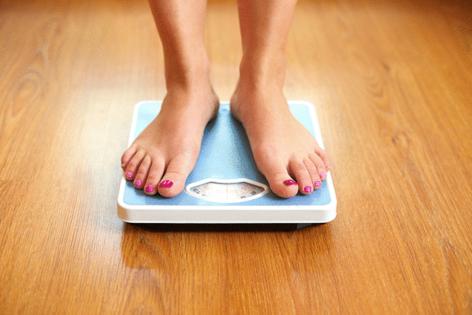On Nutrition: Weight isn't the whole story
Published in Nutrition
A reader responded to a recent article that addressed being too thin.
“I am a woman who has been considered ‘obese’ her entire life based on the accepted method of judging body composition. I am 5-foot-3 and have weighed between 160 and 135 pounds in my adult life.
“I am athletic. When I was 135 pounds, I stopped having periods and was still considered ‘obese.’ I was body shamed my entire life by my parents and doctors who said I should weigh 110. When will the medical community understand? Any suggestions? Thanks for listening.” -- Signed, K
I believe the medical community is beginning to understand, K. But judging by your experience and others I have encountered, we have much more to learn.
I assume that the “accepted method of judging body composition” you mentioned refers to body mass index (BMI). It is a simple — sometimes inaccurate — method to estimate if a person is obese, the term used for an excess amount of body fat.
Because of its ease of use, the BMI score is the main way health professionals evaluate overweight or obesity in children and adults. Here’s the problem: BMI is calculated strictly on a person’s height and weight.
In children, this number is plotted on a graph that compares the results to other children of the same age and sex. A child whose BMI is 85% to 95% of other children is considered overweight. If the BMI is greater than 95% of children of the same age and sex, the child is deemed obese.
In general, the BMI calculation is a good indicator of excess fatness. But not always, especially if the person is heavily muscled. By BMI standards, athletes and other heavily muscled individuals may be overweight (with lean tissue) but not overfat.
If you haven’t done so yet, I would urge you to find a practitioner who can measure your body composition. There are several reliable methods that can measure how much of your total weight is from fat as well as muscle, bone and water. You may be one of the those individuals whose extra weight is not fat, but muscle.
A 2025 article in the journal Current Obesity Reports reviews several of the methods available to assess body compostion. They range from highly accurate yet expensive Dual X-ray Absorptiometry (DEXA), computed tomography (CT) and magnetic resonance imaging (MRI) to less accurate but more accessible three-dimensional optical imaging scanners, smartwatch bioelectric impedance analysis (BIA) and ultrasound.
One last note: Loss of menstrual periods has many causes, including severe weight loss and/or excessive exercise. Not knowing your medical background, my wish for you is to discover your own healthful weight that you can maintain with reasonable diet and exercise habits. That number on the scale is different for each of us. Thanks for sharing your story.
©2025 MediaNews Group, Inc. Distributed by Tribune Content Agency, LLC.










Comments